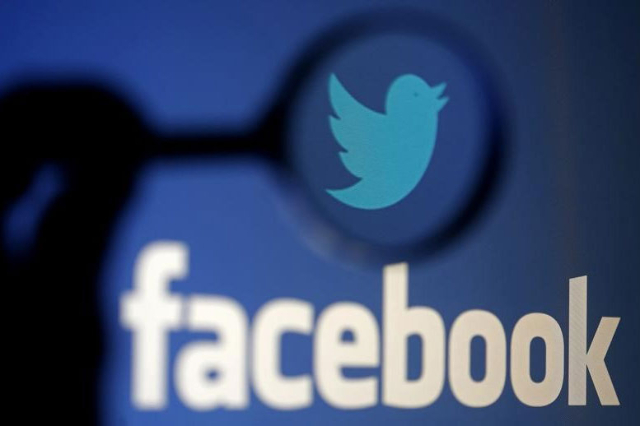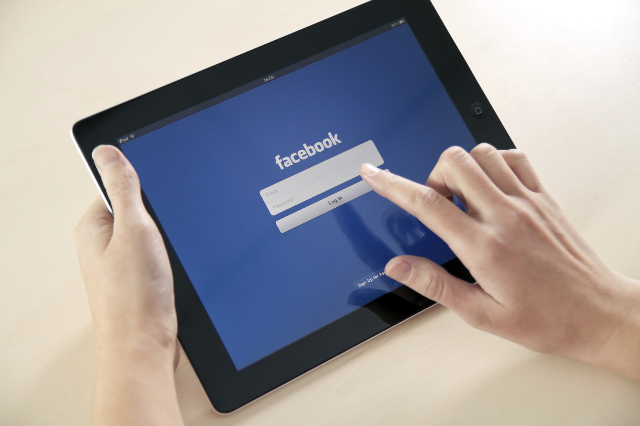5 ways your social media accounts hurt your career
Social media is a big part of many people's lives, and it can be a great tool to help build and maintain relationships, and for general self-expression. LinkedIn (LNKD) has 396 million users, Twitter (TWTR) has 307 million active users and Facebook (FB) almost 1.5 billion active users, according to Statista.com.
However, social media can easily lend itself to blurring the line between users' personal and professional lives. And any information — good or bad — posted to social media can be difficult to delete once it's out there. Fortunately, there are steps you can take to become a more responsible social media user. Read on to find out how social media can hurt your career and how to avoid social media mistakes.
1. You Broadcast Your Opinions
Your resume reflects your professional and academic achievements, but very little about your character and personality. In contrast, your social media posts reflect your opinions, beliefs and personal information. In 2010, 78 percent of recruiters used LinkedIn to find candidates. That number rose to 95 percent this year, according to recruiter training website Social Talent.
There are data mining companies that collect information to create a report about you that can be sold to companies. Recruiters have also been using "people aggregators," which are sophisticated tools that build profiles of candidates based on their postings on and across a multitude of social networking sites — such as Facebook, GitHub, Google Plus, LinkedIn, Pinterest and Stack Overflow, according to EREmedia. This might work in your favor, or not.
"It's subjective, of course ... I'd say the simplest way social media can be damaging is if a candidate appears unlikable," said Donna Talarico, a communications expert. "Likability is so crucial. If someone posts a well-formed thought about a hot-button issue, it might not appear negative. But if someone rants constantly, that could make the person appear negative and combative."
Any company can buy data that reveals your likes, dislikes, opinions, religious views, sexual orientation, activities, lifestyle and behavior. Monitor your social media sites constantly and think twice before you post.
2. You Have No Online Presence
While posting certain information can be detrimental to your career, not posting any information can be just as damaging. A professional online brand or presence gives you exposure to companies and employers, even when you're not actively seeking a job. Without this presence, you're off the radar.
Only 4 percent of recruiters do not use social media when looking for potential candidates, and 72 percent consider data analytics to be very important in the hiring process, according to the JobVite Recruiter Nation Survey for 2015. Social and professional networks are the second most popular way to find candidates, the survey found.
"The second way (social media) can be damaging is if it is nonexistent," said Talarico. "I'm so surprised at the people I see in my industry (who) don't use the tools themselves on a regular basis ... if someone doesn't have a social presence, it could be telling as to how social media-savvy they are. Getting your hands dirty is the best way to prepare."
"It's important to include work samples and professional attributes that make you stand out," said James Meincke, a former recruiter and a marketing manager at CloserIQ, a recruiting platform for sales and tech companies. "Recruiters only spend a few seconds on a LinkedIn profile, so make sure they notice something interesting."
3. Your Postings Are Prolific
Heavy social media use can give the impression that an individual is more preoccupied with social space than work. Dannielle Blumenthal, Ph.D., co-founder of All Things Brand, said that she had a negative response to her Facebook activity.
"The single most daunting area of concern for me has been the perception that I am on social media 'all the time' when, in fact, this is far from the truth," she said. "I happen to write extremely quickly and can multitask fairly well ... And I (use) it, mostly, during my personal time."
Keep your posts "genuinely useful," establish goals and keep them in mind when you publish, she suggested in a recent post on her site.
4. Your Posts Are Offensive to Some
Many people use social media platforms to express their opinions, which can potentially offend co-workers or supervisors. Twitter is one site that is often used to promote a certain cause or movement. However, what you might consider an appropriate and admirable stance on a topic, your boss might consider offensive.
"When I worked as a reporter, I was not allowed to have an opinion. On anything," said media specialist Christina Nicholson. "I had to double- and triple-check everything I posted. Now that I own my own PR firm, it's different. I still have to remember who I am and what I do, and it's a reflection of me at work, but I don't have to worry about answering to a boss after a tweet."
"If you are opinionated and want to speak freely on social media, ask yourself 'Is it okay if my boss sees this?' before posting," she said. "If not, maybe consider getting a work account (separate from) a personal account."
5. You Are Not Always in Control
Sometimes you're not the one who exposes information on social media. "That 'lost weekend' in Vegas was captured on Instagram, Twitter and Facebook by those who were lucid enough to shoot and post your images," said relationship expert April Masini. "The lap dances and boozy nights may have been all in good fun, but now your career is lost along with that weekend."
"Your vacation may not be what your company wants projected in association with their brand. You're scrupulous at work, but not so much online," she added.
While any social media posting, except purely professional information on sites such as LinkedIn, runs the risk of offending someone, it is unlikely that people will cease airing their opinions any time soon. Keep yourself visible and relevant on social media, and follow this advice from Rachel Bitte, Jobvite HR executive:
"Don't rush to post a selfie on Facebook — 25 percent of recruiters see selfies negatively. Don't share details of alcohol or marijuana use on Facebook — 54 percent of recruiters view alcohol negatively and 75 percent view marijuana negatively. Make sure your Facebook posts' grammar and spelling are correct — 72 percent of recruiters cite these mistakes as a negative."
From GobankingRates.com: 5 ways your social media accounts hurt your career
Related Stories:
-10 tech-savvy ways to double your income
-5 best websites to find a high-paying job































